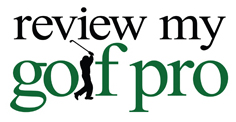Are You Sure You Have a Pre-Shot Routine?
Guest Blogger Jon Wortmann, Mental coach for the University of Connecticut Men's golf team and author writes about the pre-shot routine, and how effectively using one can have great impact on your game.
The pre-shot routine may be the easiest opportunity for golf enthusiasts to improve their games, even if you only get out a few times a month.
For most golfers, the pre-shot routine consists of a few waggles; and when nervous, a few more. Before chipping, it's common for most club players to take a few practice swings to get the feel of the grass. Over a putt, whether you're a four or a forty handicap, it's a couple of rehearsals, maybe a forward press, and then the stroke.
For the pros, the ritual over the ball is the smallest part of what they do to get ready to make a great swing.
The pre-shot routine actually begins behind the ball. The best amateur and professional golfers know that before you can even walk towards your ball, you have to make a complete decision about the shot you're about to hit. That's what pros are doing when they talk to their caddies. Whether they have worked with sports psychologists or figured it out intuitively, they know that any doubt as they walk to the ball causes tension. Tension is the enemy in golf.
Every human being has two tiny almond shape regions on both sides of their brain called the alarm. Technically named the amygdala, this part of your brain pays attention to the things that can cause you trouble. These range from something that could seriously harm you, like a gator, to something minor like forgetting to account for the wind when choosing a club.
When someone yells, 'Fore', it's the alarm that sends the signal to your body to duck. But when you feel unsure over a putt, that's the alarm too. It realizes that either you haven't committed to your line, you've picked the wrong line, or this is simply a really important putt you don't want to miss. In each case, the unsure feeling causes tension. Tension causes bad strokes because we either swing too hard or hold onto the club too long.
The solution is to start your pre-shot routine behind the ball. Like an airline pilot uses a check list before takeoff, consider the things you know impact the shot you're about to make. Don't wonder if you have enough club and then make a swing: consider the wind, lie, distance to the front, back, pin and any trouble, and pick the club you know will get to your target. Don't decide where to hit a putt as you're next to the ball rehearsing: pick your line and whether you want to die the putt or hit it firm before walking to the ball.
It's such a simple thing to make definitive decisions behind the ball, but most golfers don't. The result is tension and bad strokes, which lead to extra strokes.
To practice, once you’re warmed up on the range, think about about your shot behind every ball you hit. You have to practice making a committed swing.
You're not going to make great swings every time just because you commit to the shot. Golf is hard; some days you'll want to win, be on a new course and want to play your best, or be working on your game. Some days the ball just won’t behave.
But when you remove indecision, you have more fun. There is nothing worse than feeling like we have no control on the course; there is nothing better than clearly knowing what you're trying to do and learning every time you pick up a club.
Next time you play, put a dot on the scorecard for every stroke you were totally committed. That's your commitment score. It should be the same as your total score that day. Golfers who commit don't let their brains create tension every golfer can avoid. That's a formula for a lower handicap this season.
Jon Wortmann is mental coach for the University of Connecticut men and beginning in the spring of 2014, the Dartmouth women’s golf team. His first two professionals gained PGA Latin America status on their first attempt. His amateur students have qualified for the US Amateur, US Mid-Am, and won dozens of club championships. He is the author of Your Brain on Golf (coming out this spring from Amazon) and Hijacked by Your Brain: How to Break Free When Stress Takes Over.











